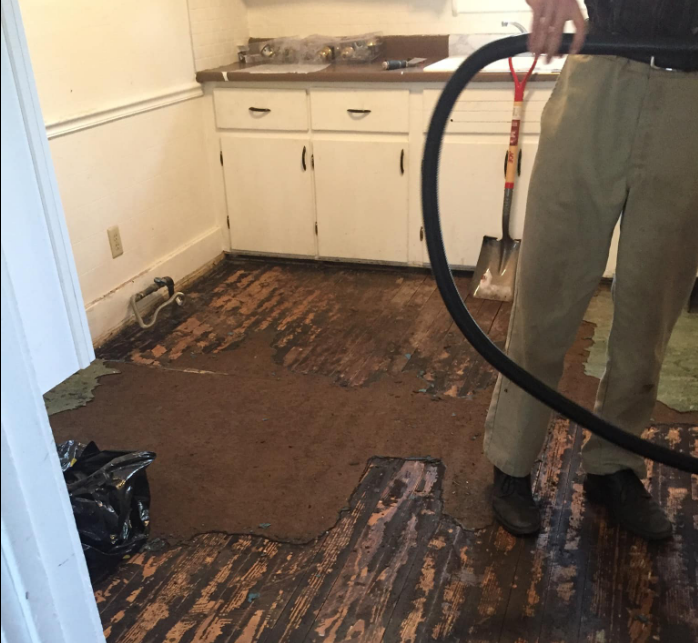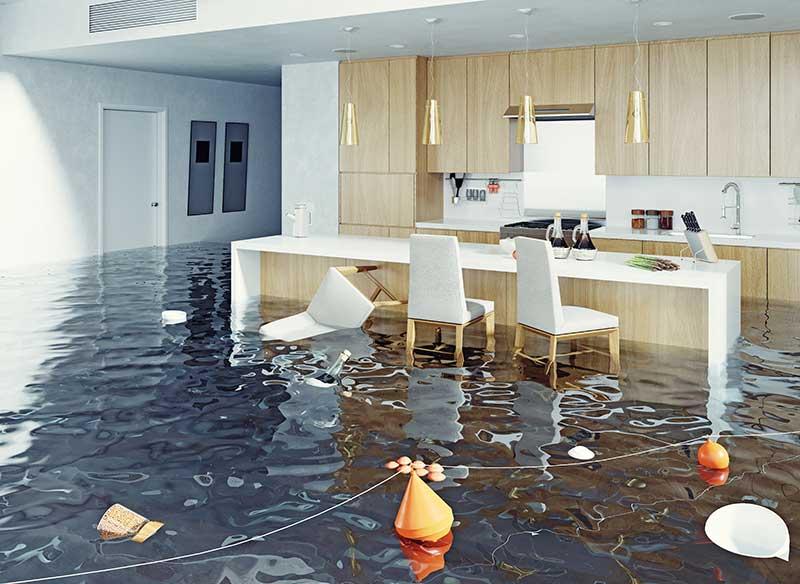Usual Root Causes Of Water Damage in Kitchen
Usual Root Causes Of Water Damage in Kitchen
Blog Article
The article author is making a few great points on the subject of Water Damage in Kitchen overall in this great article further down.

The kitchen area is the space where a lot of water activity takes place. You can rarely do anything without making use of water in the kitchen area, from cooking, cleaning, and doing the recipes.
Hence, examining your kitchen area every now and then is a necessity. This is because it has a greater possibility of getting water damage due to the appliances you make use of there.
When defective, these appliances that regulate water might make your kitchen messy and also impact the structure of your building in the long run.
So, allow's take a look at some reasons for the water damage in the cooking area and what you need to keep an eye out for.
Some Reasons For Water Damages in the Kitchen area
These are a few sources of water damage in the kitchen area.
Faulty Drain Pipes
Drain pipes Pipes are essential parts of our houses, specifically in our bathroom and kitchens. Nonetheless, they obtain faulty by getting obstructed, split, and ruptured. Or worse, they can be mistakenly or loosely attached; whichever the case might be, it can be a severe issue.
Faulty drain pipelines can cause water damage as well as, as a result, trigger mold and mildew growth and also disfigure the look of your wall surface. It can also make the afflicted location look messy.
It is recommended always to inspect to make certain that all the pipelines are in good condition and also get an audio pipes system to maintain and repair any type of concerns.
Faulty Cooking Area Sink
The cooking area sink is a vital and many utilized part of the kitchen area. It is prone to water damage; damages such as blocked pipes, leaking pipes, as well as defective faucets.
These damages can be frustrating, specifically when one is active in the cooking area. It does not simply occur without providing an idea or an indicator. Below are some indicators to recognize when your sink is not alright
So, these are the major problems that can take place to your kitchen area sink. Nonetheless, one method to stop this damages is by making sure that food bits do not get into the pipelines. You are likewise checking the taps and pipelines and making certain that it is appropriately repaired and also in good condition.
Leaking Dish washer
Dishwashing machines make life in the kitchen much easier. It is an optional cooking area home appliance and also, when offered, can be a resource of water damage. Additionally, like various other devices, it will certainly establish mistakes over time, even with upkeep.
One of the mistakes is dripping with the door or under the dish washer. These faults create due to age, fractures, incorrect usage, loosened web links to pipes, and so on.
Faults because of age originated from continuous use. Therefore, the door leakages due to opening up and shutting.
Also, mistakes from the incorrect usage might create water damage by introducing cracks to it. It is recommended to comply with the hands-on overview of the dish washer to stop this particular damage.
The leaks under the dishwasher can come from fractures in the gasket, pipe, and also loosened or incorrect link to pipes or drains pipes.
This sort of leakage usually goes undetected and also can be there for a long time. Nonetheless, due to the time frame, it could damage the flooring and create mold and mildew development.
More so, the longer the water remains, you will certainly observe the bending of the floor where the dishwashing machine is. This is a great sign to look out for when checking if your dishwasher leakages. Spotting and also repairing this in a timely manner stops major water damage to your flooring.
Bottom Line
Keeping an eye out for problems in your kitchen area can be entrusting however required. It makes your work there easier and also much safer.
Nevertheless, the causes detailed above are just a couple of elements to consider, specifically if your cooking area has a lot of appliances.
Obtain an expert pipes solution to come around as well as check for any type of damages as well as get them taken care of.
It makes your kitchen area damp and unpleasant, specifically when leaking from the pipelines. As well as if it is dripping from the tap, it leads to water wastage.
It is an optional kitchen area appliance as well as, when available, can be a source of water damage. A lot more so, the longer the water stays, you will certainly notice the warping of the flooring where the dishwashing machine is. Detecting as well as repairing this on time prevents severe water damage to your flooring.
WAYS TO PROTECT YOUR KITCHEN FROM WATER DAMAGE
The kitchen is one of the most significant rooms in your house, as it is a multipurpose room wherein you can do your cooking and cleaning. Nowadays, homeowners tend to ignore the problems under their sink or appliances because of their busy schedules. However, most household floods occur due to plumbing and appliance failure. One of the most common scenarios that cause water damage to your kitchen is when the dishwasher malfunctions and floods gallons of water.
Water damage in your kitchen can cause several problems, including cosmetic damage, mold growth, and even an unpleasant smell. Often, if you fail to neglect the problem, there are always consequences. This article will help you protect your kitchen from water damage.
Common Causes of Water damage in your kitchen
Pipe problems are the most common source of water leaks under your sink. If homeowners ignore this issue, it will burst and flood the kitchen. Dishwasher leaks can be a source of water damage in your kitchen. An old, broken, and defective dishwasher can cause leaks, damage to your floor, and even mold growth. Refrigerator leaks can cause water damage in your kitchen, as sometimes melted ice from defrosting can cause leaks. Furthermore, if your refrigerator has internal problems, it is very likely to cause water damage. Back-splash and sink caulking can cause discoloration and water damage to your countertop tiles. Ways to Protect Your Kitchen From Water Damage
Regular maintenance
The most important thing you can do to protect your kitchen from water damage is to inspect the sinks, drains, and pipes, as well as the kitchen appliances, regularly. As with the sink, check for missing or deteriorated caulk. Remove the old caulk and clean the area thoroughly and re-seal it with fresh silicone. Furthermore, sweep the drain regularly, empty the filter and dispose of the debris in the garbage, and inspect the supply lines and valve for cracks.
Check your appliances
Check the user’s manual for instruction and proper use of every water-related appliance installed in your kitchen. For the dishwasher, check this procedure to prevent the dishwasher from flooding your kitchen. Check the appliances that need water, such as the coffee maker, ice maker, and water cooler, as they can become the cause of water damage in your kitchen. You may call a professional to check and repair damaged appliances and professional restoration for water damage clean-up.
Garbage clean-up
Fats, oil, and grease are common in the kitchen. Pouring them down the drain can cause clogs and sewage backup, which may result in significant kitchen water damage. If your kitchen sink is clogged, use a solution of hot water, baking soda, and vinegar to unclog the fats and oils in the pipes. Also, make sure to throw out the debris in the trash and clean the sink properly using paper towels for greases and oil and soap or bleach solution for the sink itself.
Shut off your water line
Make sure to shut off your main water line, especially if you're away and having some flood issue. As mentioned, dishwasher leaks are one of the most common culprits of water damage in the kitchen. So, make sure to only use the dishwasher if someone is at home and available to attend in case a problem arises.
Furthermore, it is also important that every member of your household knows where the shut-off valves are located. So in case of an emergency, they can mitigate the damage by turning off the water source.
Install leak detectors
One of the best ways to catch water damage before it could even cause serious damage to your home or business is by installing a water or leak detector. A leak detector monitors the flow of water through a pipeline, can detect moisture in the air for molds, and tracks the water temperature. Also, it can shut off your water line in case of an emergency. Install leak detectors under the kitchen sink, near the dishwasher and refrigerator.
https://superiorrestore.com/7-ways-to-protect-your-kitchen-from-water-damage/

As a serious person who reads about How To Prevent Water Damage To Your Kitchen, I thought sharing that piece of content was a great idea. Remember to take a moment to share this article if you liked it. Many thanks for taking the time to read it.
Explore Report this page